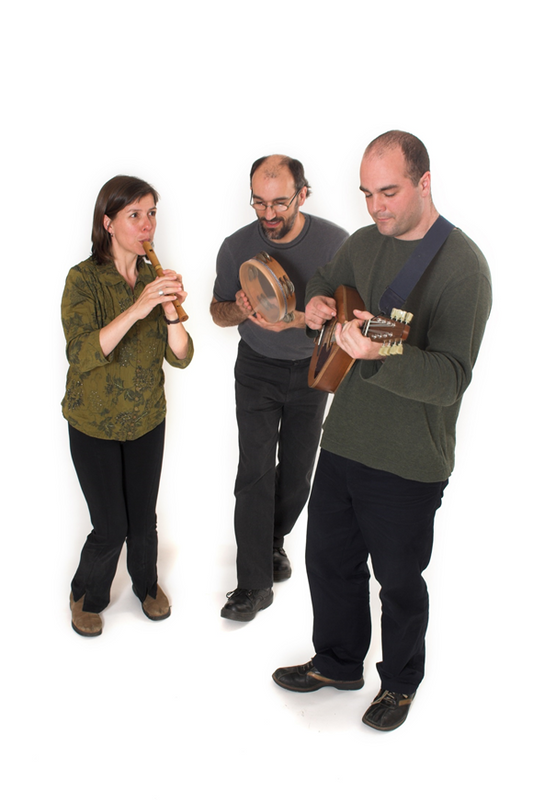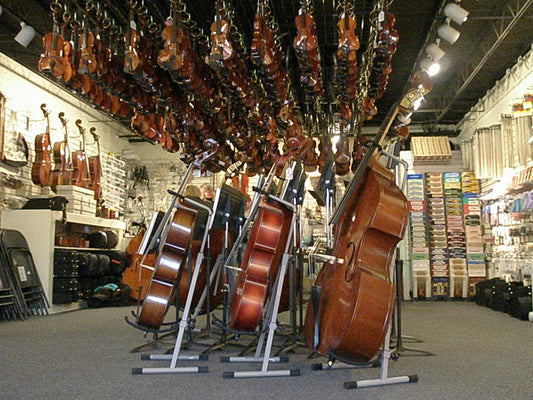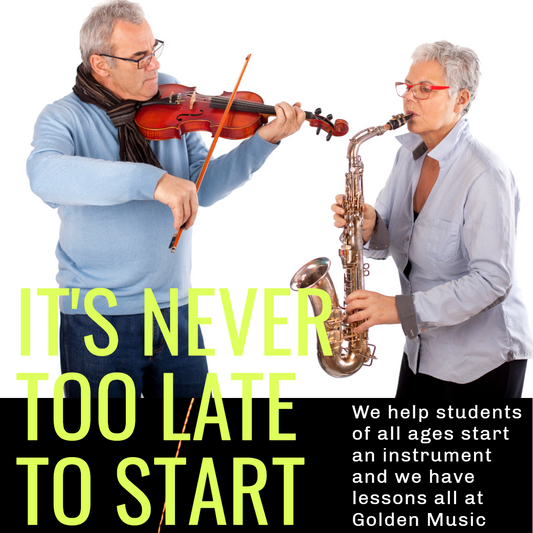Music Music Music

Three Reasons Why Every Adult Should Take Music...
Seem frivolous? Intimidating? The benefits outweigh the expense and awkwardness. It's been proven that: 1. Music lessons lower stress and make you smarter. 2. Learning to play an instrument comes...
Three Reasons Why Every Adult Should Take Music...
Seem frivolous? Intimidating? The benefits outweigh the expense and awkwardness. It's been proven that: 1. Music lessons lower stress and make you smarter. 2. Learning to play an instrument comes...

Choosing An Instrument For Your Child
It is the beginning of the school year, and just like every other school year, we get several phone calls a week asking the same question, “WE really want our...
Choosing An Instrument For Your Child
It is the beginning of the school year, and just like every other school year, we get several phone calls a week asking the same question, “WE really want our...

Put A Little Music In Your Heart
What is it about music that touches our soul, evokes emotions from happiness to sadness, gets us toe-tapping and exhilarated? These rewards especially come when you play an instrument and...
Put A Little Music In Your Heart
What is it about music that touches our soul, evokes emotions from happiness to sadness, gets us toe-tapping and exhilarated? These rewards especially come when you play an instrument and...
June Master Sale - Featured Violin - Francois B...
Francois Breton - France - 1778-1830 Francois Breton was a violin maker who did most of his work between 1778-1830 in Mirecourt, France. He was the personal luthier to the...
June Master Sale - Featured Violin - Francois B...
Francois Breton - France - 1778-1830 Francois Breton was a violin maker who did most of his work between 1778-1830 in Mirecourt, France. He was the personal luthier to the...
June Master Sale - Featured Violin - Ernest Mumby
Ernest Mumby - British Maker - 1888-1929 This is the Ernest Mumby Violin. He was born in 1888. He worked in Tottenham, North London, United Kingdom. He was a pupil...
June Master Sale - Featured Violin - Ernest Mumby
Ernest Mumby - British Maker - 1888-1929 This is the Ernest Mumby Violin. He was born in 1888. He worked in Tottenham, North London, United Kingdom. He was a pupil...
Scottish Fiddling Comes to Golden Music in Lake...
This Sunday we welcome Although she is the Juice O' the Barley's fiddler extraordinaire, Kelly also performs music in other genres--and quite well. Website SepiaChord.com described her as the "secret...
Scottish Fiddling Comes to Golden Music in Lake...
This Sunday we welcome Although she is the Juice O' the Barley's fiddler extraordinaire, Kelly also performs music in other genres--and quite well. Website SepiaChord.com described her as the "secret...
